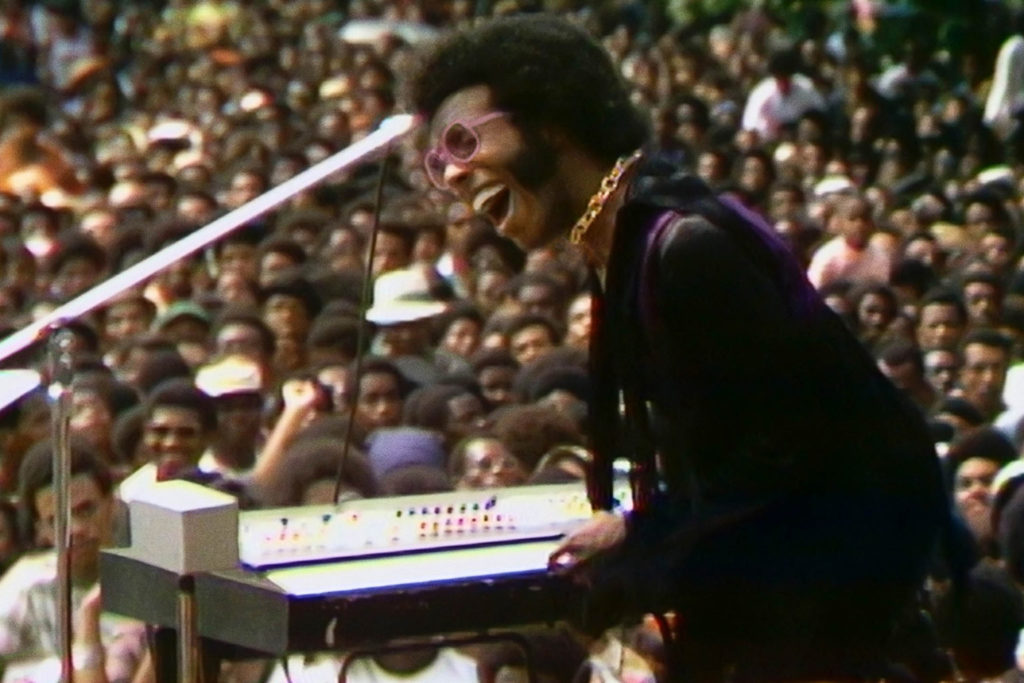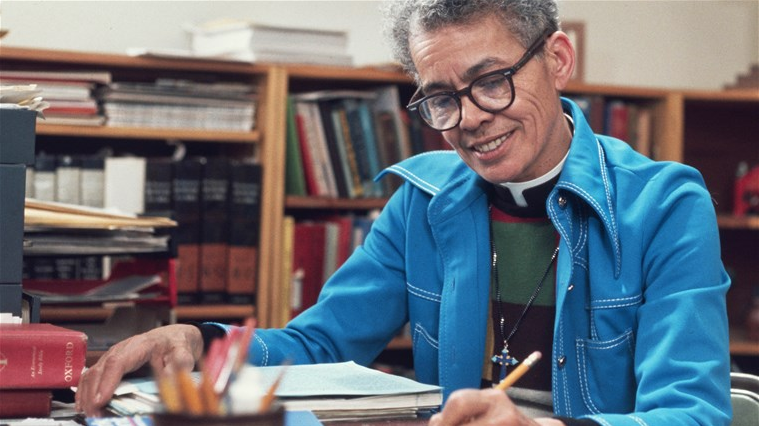Black History Month
Feb 9, 2021
Dear Preachers,
As part of Black History Month, we’re celebrating Black artists whose music, film, writing, or fine art has been important to the lives and ministries of Black leaders in our Micah community. The brief testimonials below are just a glimpse of the many ways in which God’s beauty, grace, and wisdom have been revealed through these gifted artists —whether knowingly or unknowingly.
In his 2012 memoir, Kenyan novelist Ngũgĩ wa Thiong’o recalls being surprised when representatives from the Makerere Art School visited his high school with paintings of a black Christ, acknowledging Christ’s non-white ancestry, and arguing that God chose to be revealed through the different colors of different cultures. “God after all made man in his image, to black people in his splendid blackness and to white people in his silvery whiteness. . . Each of us could know how God looked by looking at ourselves” ( In the House of the Interpreter, 92).
Perhaps we will each see God a bit more clearly as we look upon the splendid blackness of these artists and the leaders they have nurtured.
Blessings and Peace,

Rev. Dr. Jennifer Ackerman
Director, Ogilvie Institute of Preaching
Brehm Center | Fuller Theological Seminary
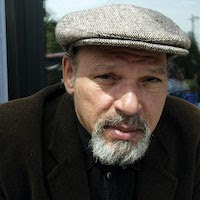
August Wilson, Playwright — Fences
from Dr. Reginald Smith | Grand Rapids, MI
Director of Diversity, Christian Reformed Church in North America
August Wilson’s ten plays on the African American experience spoke to my heart like no other work by a black playwright. When I read Fences, I saw my father who came from the red dirt farms of north central Mississippi, trying to make a life for his wife and seven children in Chicago. The lives in Wilson’s plays sounded like people I grew up with in North Lawndale, all black migrants from southern towns who made their way to places like Pittsburgh with big dreams, dashed hopes, and well-earned wisdom for the next generation. I believe it is safe to say that Wilson was my Shakespeare. He had an ear for deep listening to the cadence and culture of Black people that felt real and authentic. His constant theme throughout his plays were that ordinary people were more exciting than celebrities and famous people. Wilson taught me to truly listening to my own life and find the deep soul of Black life comes in ordinary packages.
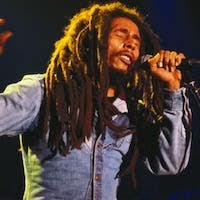
Bob Marley, Musician — Exodus Album
from Sherine Green | Cherry Hill, NJ
Director of Youth Faith Formation, Christ Our Light
Adjunct Professor, Villanova University
I grew up in Jamaica hardly listening to the music of reggae—the daily soundtrack throughout the island. As a teen, I intentionally listened to American popular music and gospel. Later in life, I came to understand that the music of reggae speaks to liberation and focuses on love. People are crying out for this nourishment, so music like “One Love” or “Natural Mystic” is prophetic and reflects the happenings of our time. I hope to bring this rhythm of happiness with me while bringing to light the need for unity and equity, the need for freedom in my quest to connect heart to heart.
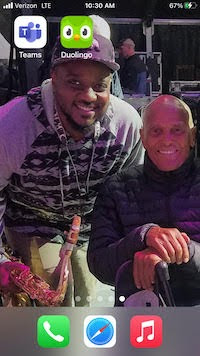
Harry Belafonte, Musician — The Sit in: Harry Belafonte Hosts the Tonight Show
from Rev. Dr. Gina R. Casey | Santa Rosa, CA
Staff Chaplain, St. Joseph Health
Listening repeatedly to Harry Belafonte’s live recordings at Carnegie Hall as a child, I learned many folk songs from around the world. Two of the Jewish songs on those albums, “Hene Ma Tov” (Psalm 133:1) and “Vaichazkem” (Chronicles II 26:9-10) made me seem quite impressive when taking Hebrew at Fuller. My appreciation for this civil rights activist and Grammy, Emmy, and Tony award winner escalated after watching the documentary The Sit In: Harry Belafonte Hosts the Tonight Show. I regret never having seen him in concert. But my son James (a professional musician) blessed me with a selfie of him and Mr. Belafonte taken at an event a few years ago. Of course, it’s my iPhone wallpaper!
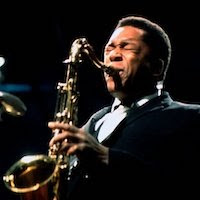
John Coltrane, Musician — A Love Supreme
from Rev. Dr. Nigel Pearce | New York, NY
Senior Pastor, Grace Church of Harlem, UCC
This album is important to me because of the way it was written. The album came about when John Coltrane had hit rock bottom in his life struggling with drug addiction. He locked himself in his bedroom and in two weeks wrote what would become his epic piece of art to the world. I believe Love Supreme is who he met while in that room. John Coltrane often said that when he went into those wonderful riffs with his saxophone he was just “speaking in tongues.”
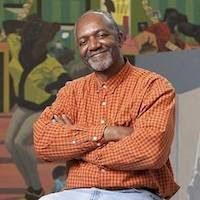
Kerry James Marshall, Artist — “Vignette Series”
from Rev. Jonathan “Pastah J” Brooks | Chicago, IL
Pastor, Canaan Community Church
Kerry James Marshall’s Vignette series explores authentic representation of black figures in art. He uses “traditional” genres of painting but nuances them with honest narratives from Black life. In the Vignette Series of paintings, he shows a Black couple posed for a picture and each vignette looks at the couple from a different perspective in one single moment. The viewer sees the same moment in a 360° view with varying angles and perspectives. This narrates the way I want people to look at the world—believing that the way we see things will vary depending on the perspective in which we hold. All people and places display both beauty and brokenness. Our perspective will often decide which we see.
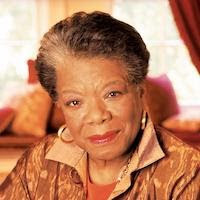
Maya Angelou, Poet — “I Know Why the Caged Bird Sings”
from Rev. Dr. Alice Wade Davis | Greensboro, NC
Associate Pastor, Mount Pisgah UMC
One of the reasons I chose Maya Angelou’s work is because at one point, maybe two, I was the caged bird. Many of the things expressed in her poem and book represent many of my own experiences growing up in poverty and subsequently being placed in a family member’s home. I named my youngest daughter Maya because of the profound effect Ms. Angelou had on my life.
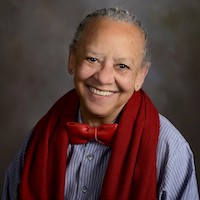
Nikki Giovanni, Poet —“Ego-Tripping”
from Rev. Dr. Lisa D. Jenkins | New York, NY
Senior Pastor, St. Matthew’s Baptist Church of Harlem
Adjunct Professor, CUNY
I was born in the Congo. I walked to the fertile crescent and built the sphinx…
I remember sitting in the attic of my parents’ home when I first read those words by Nikki Giovanni. I believe I was in the 5th grade and I had no idea who she was. All I knew was that her words, written on paper and absorbed by my spirit, flowed through me and strengthened me. All I knew was that it was okay that “I cannot be comprehended except by my own permission” and that I finally knew that “I can fly, like a bird in the sky.”
Nikki Giovanni, Poet — “Mercy“
from Rev. Dr. Joy Johnson | Sacramento, CA
Micah Groups Mobilizer, Ogilvie Institute of Preaching
President and Founder of Life Matters, Inc.
Nikki Giovanni has been called the Poet of the Black Revolution and is one of my favorite influencers. I was inspired and captivated by her as a freshman in college in 1969 when she spoke at Kansas State University with authority and authenticity. I have never forgotten how exhilarating it was to see her huge afro and her words of Black pride. Once in an interview, Giovanni spoke of imagining our ancestors during the middle passage when they could not communicate in one another’s language. Surely, she said, there would have been a woman who drew everybody together with a corporate moan. That woman must have said, “I gotta do something to get my people going…” I, also, believe that would be just how leadership rose up in that desperate time and place.
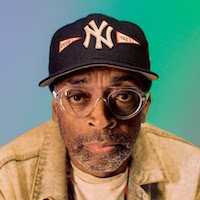
Spike Lee, Filmmaker — Do The Right Thing
from Rev. Dr. G. Joseph Mitchell | DeKalb, IL
Senior Pastor, New Hope Missionary Baptist Church
Spike Lee has always toed the line between controversy and intelligence. The 1989 classic, Do the Right Thing, is no different. Given the limitations of a full feature film, Lee explores the volatility of racism, social economic status, implied bias, the power of community, and police brutality. This film’s implications on my ministry life run deep. I often juxtapose myself with “Mookie,” the main character played by Spike Lee, and hold the issues engaged in the film in tension as a minister and leader of a community of faith. As a proclaimer of the Gospel and member of the body of Christ, how do I/we “do the right thing” as conduits of change around racism, classism, and police brutality?
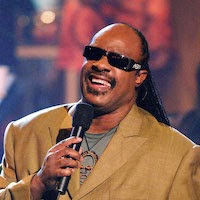
Stevie Wonder, Musician — “Ribbon in the Sky“
from Dr. Brian Taylor | Cincinnati, OH
Senior Pastor, Every Nation Cincinnati Church
Choosing one person to celebrate had me stuck at first because I have been so influenced by so many artists and musicians. However, one that came to my mind is Stevie Wonder. One song that really made me a fan is “Ribbon in the Sky.” Also, when I was first getting to know my now wife of 17 years, I would go home and listen to another one of his songs, “Kiss Lonely Goodbye,” which is really cheesy now that I think about it. I tell our kids that this song by Stevie Wonder was one of the reasons they are here. I appreciate the imagery in his music and the way that the sound and words transcend one particular time period.

Thomas E. Evans, Church Musician
from Rev. Dr. Patricia A. Butler | Detroit, MI
Pastor, St. Luke Tabernacle Community Church
Thomas Eugene Evans, Sr. was a favorite local church musician who passed away from COVID-19 in April 2020. For Thomas, music was life. Beginning at age 3, he played for churches, gospel artists, R&B groups and formed a band. In his forties, he vowed to use his hands only for God’s music. A Detroiter, Thomas could follow any singer, was a choir director, master of the Hammond B3 with both left and right hands and was known for “jazzed up” versions of gospel hymns. While not famous on the worldly stage, his legacy of musical artistry and faithfulness makes him a celebrated child of the Most High.
New Films Sharing Stories of Black Greatness
Our team at Reel Spirituality (the film initiative of the Brehm Center) just wrapped their coverage of the 2021 Sundance Film Festival. Some of the festival’s top films were stories of Black poets, priests, activists, and musicians—many stories being told for the first time. Here are two films in particular that celebrate the beauty of being Black.
SUMMER OF SOUL: In 1969, 300,000 people gathered in a New York City park for the Harlem Cultural Festival, but despite the size and the stars on stage, it was quickly forgotten because networks were only interested in Woodstock—which happened the same summer, about 100 miles away. The main difference between the music festivals: one was predominantly white and the other was Black. Through footage that has never been seen before—and that sat in a basement for 50 years—Summer of Soul gives visibility to the healing and radicalizing gift the festival brought to the neighborhoods of Harlem.
MY NAME IS PAULI MURRAY: Fifteen years before Rosa Parks refused to give up her seat on a bus, Pauli Murray refused to move from her bus seat, was thrown in jail, and took her case to the NAACP. She was one of the first Black women to attend Howard Law, and along with James Baldwin, she was one of the first Black columnists at the prestigious MacDowell. (Formerly known as the MacDowell Colony.) She was a lawyer, a poet, a professor, and the first Black woman to be ordained as a priest in the Episcopal church. The documentary My Name Is Pauli Murray introduces us to the activist and spiritual leader the world forgot.

